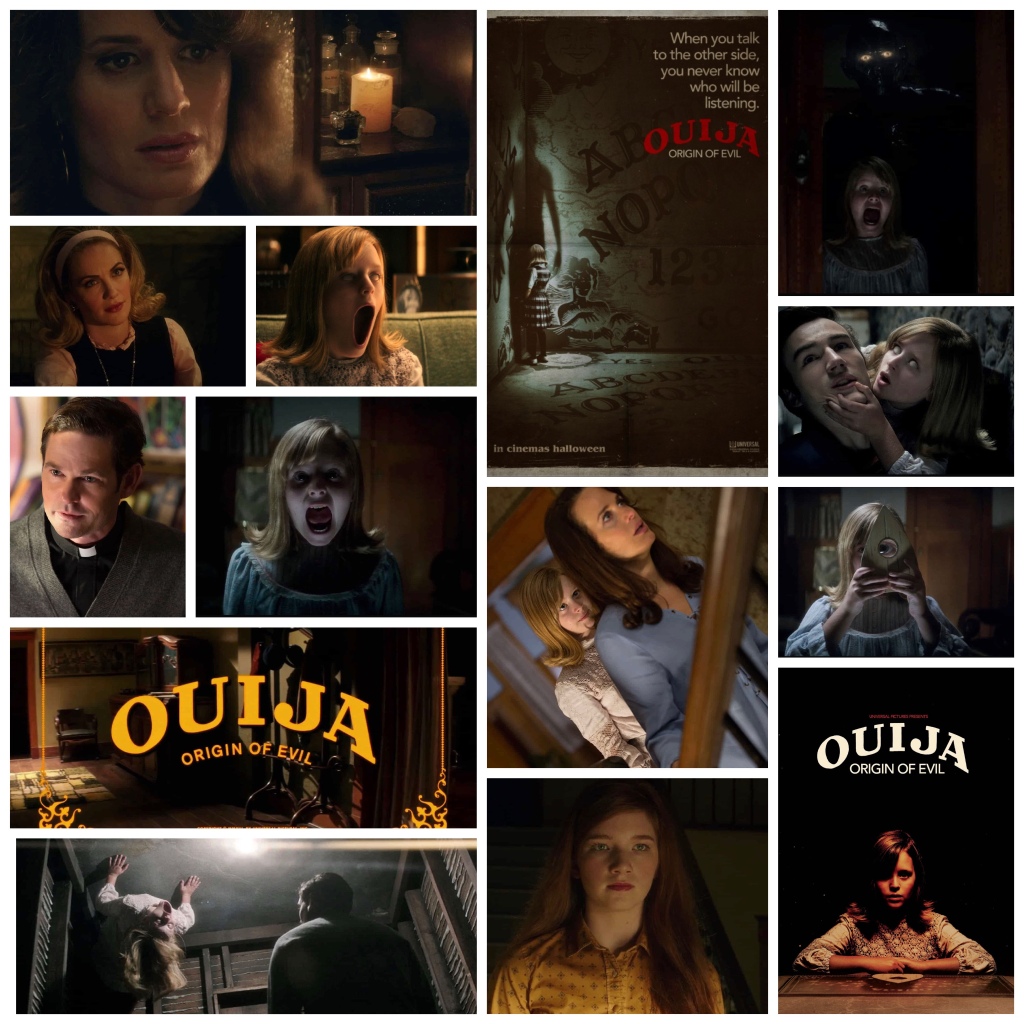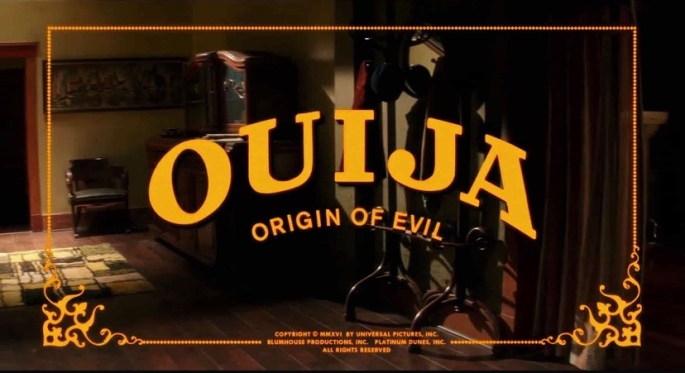
There’s a million and one movies out there about Ouija boards and it’s potentially a great concept but most of them are pretty shit. Ouija: Origin Of Evil, however, is directed by Mike Flanagan who in my experience has never made a film that was anything less than terrific, and this is no exception. Ostensibly a prequel to a more modern set Ouija movie that I’ve only seen a trailer for, Origin backtracks to the late 60’s where a widow (Elizabeth Reaser) and her two daughters (Annaliese Basso and Lulu Wilson) run a seance scam out of their living room to pay bills and make ends meet. One day the older daughter decides a Ouija board would be a fun idea to throw into the mix (right?) and before they know her little sister has become a full on medium for communicating with the dead and whatever else is out there, but she has no filter for letting things in and pretty soon something dark and pissed off is hanging around the house with them. The daughter’s catholic school teacher (Henry Thomas) does what he can to help them out but the decades old secret that haunts their home threatens to annihilate them all. This is a solid horror film that relies on mounting tension, the use of space, sound design and ghostly possession to scare the viewer effectively, and never cheaply like a lot of horror films do. Flanagan in my eyes is a master of the genre akin to and on the same level as Carpenter, Craven and Argento, he’s that good. His stories are terrifying but there is *always* a discernible undercurrent of humanity and character development interwoven so that we actually care when people are being terrorized onscreen. Reaser, Basso and Wilson are terrific as the mother and daughters, as I love how Flanagan has his extensive ‘troupe’ of actors he keeps recasting in new projects, they become like recognizable totems of his work and I love seeing people this talented show up time and time again in different roles. This might be a bit slighter of a film when I look at my preferences regarding his career overall, but it’s no less well crafted, unearthly and thrillingly alive as the rest in his stable. Great stuff.
-Nate Hill


